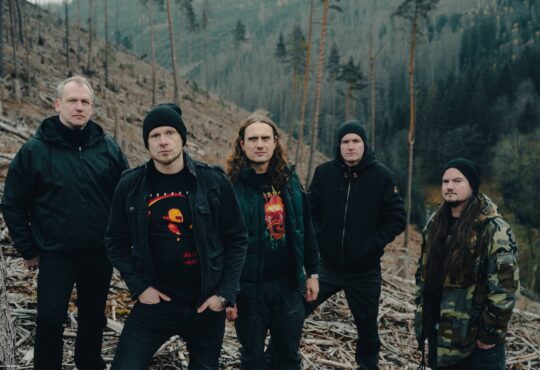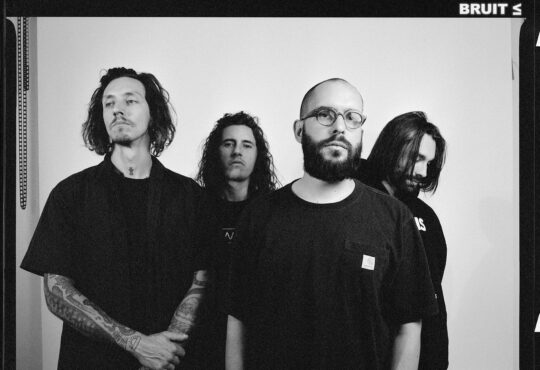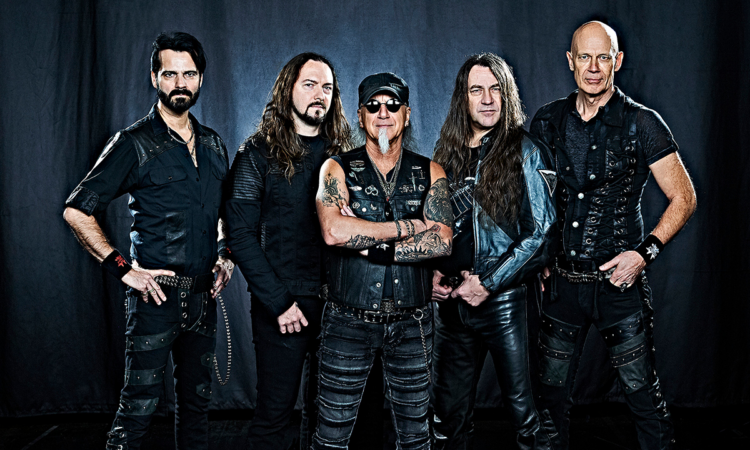
It’s on the occasion of the release of Accept‘s new album that we met Wolf Hoffmann to discuss the evolution of technology and its impact on music creation, not forgetting Humanoid.
Is technology posing challenges in today’s music industry?
Wolf Hoffmann (guitar): No, I think that part has gotten easier. There are better amps, tools, and technology available than ever before. It makes recording and performing easier. Whether that makes it better is a question of opinion, but it is certainly easier than ever to achieve a good sound, I think.
Are there any temptations to rely too heavily on technology or even AI at some point?
Wolf Hoffmann: I think what we try to do is use modern technology with an old-style songwriting approach. Our recording process is still a little old-school because we meet in person and work on the songs together. When it’s time to record the guitars, I sit with Andy Sneap. When it’s time to do the vocals, it’s Andy and Mark, and I sometimes join in. So, it’s always two people at once; it’s never like, ‘Hey, I’ll send you an email with an MP3, do something,’ and then send it back. That approach doesn’t work for us, but we do use modern technology. We record with modern amps, modern ProTools, and all the plugins and tools available.

How does the current situation compare to previous albums from earlier times?
Wolf Hoffmann: Well, there was a certain comfort in using old technology, but at the same time, there were so many limitations. Let me give you an example: I was watching the documentary, I don’t know if you’ve seen it on Netflix, it’s called ‘The Greatest Night in Pop,’ where they recorded ‘We Are the World’ with Michael Jackson and all that. It reminded me of the old technology they were using, like rewinding the tape. They were using tape machines, and even by today’s standards, we take it for granted. You start from a certain point in the song and you record, and then you start again from the same point; there’s no rewind.
Back then, you had to wait for the tape to run back, and then you had to manually erase the previous take. So if you did another take, the previous one was gone most of the time, unless you had an unlimited amount of multitrack recording, which nobody did. That forced you to decide at that moment, and that was good in a way because you didn’t have endless options. But at the same time, it was kind of frustrating because you didn’t have the option.
With the abundance of options available today, are there also risks associated with striving for perfection?
Wolf Hoffmann: That is the risk, yes! And sometimes, perfection is boring. You reach a point where… and let me tell you, another huge difference nowadays is that we see everything on the monitor. If you’re slightly behind or ahead of the beat, you notice it right away. But your ear might still perceive it as good. Sometimes, we have to close our eyes and not look at the darn monitor because it’s easy to be misled.
The album displays a lot of diversity. How do you maintain your unique sound while incorporating various ideas?
Wolf Hoffmann: Well, we try to stay on target when it comes to songwriting. When it’s time to write the songs and when it’s time to pick the songs for the album, we try to be mindful of Accept’s legacy. We ask ourselves which ones sound the most like Accept and which ones do not. Maybe there’s a pretty good idea, but it doesn’t feel like Accept, so we’ll throw it out. There’s no point in trying to be somebody else. We are who we are, and we’re very proud of that fact. We want to build on that and just get better with each album, but not different, to be honest.
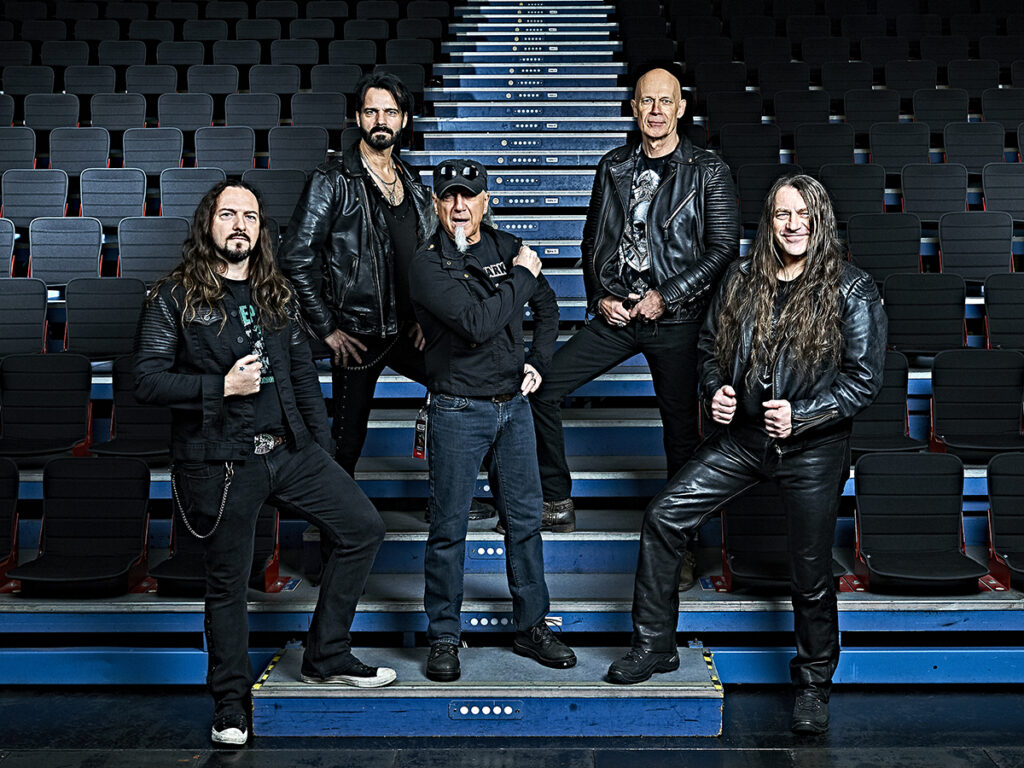
Have you considered taking more risks with ideas that may not fit the typical Accept style, but could still please fans?
Wolf Hoffmann: Hmm, not really, because those days of trying to find our style are behind us. We have our style, and we know who we are and what we want. That’s what we’re aiming for. There will always be unfinished songs and leftover material. I mean, for every album, I compare it to photography because I was a photographer for a while. I liken it to taking pictures.
Let’s say your task is to shoot 10 great pictures of Paris. You can’t just go out and snap 10 pictures. You have to take maybe 10,000 and then pick the best 10 and ask yourself, ‘Do they fit together? Do they work together?’ That’s what an album is like. There’s a lot of throwaway stuff that never sees the light of day because it’s part of the selection process. It’s normal to have some rejects and stuff that you distance yourself from.
How relevant is it to release your 17th studio album in 2024, considering your extensive discography?
Wolf Hoffmann: It’s not any more challenging than it was for the last album or the previous one. It’s kind of the same with each album. You always try to challenge yourself to do the best you can do. With each album, I think, ‘Alright, this might be the best one yet,’ because there’s a chance that every album or every song you write could be the most successful one you’ve ever done, the best one.
And then, whether it’s best received, you know, could be, you never know. And if you try hard or if you are really lucky, then it might be the one that sets you over the moon. I mean, at this late stage, it’s kind of unlikely, but do people still have hits? Sometimes we’re saying, ‘Oh, this is gonna be a hit,’ but really, what is a hit nowadays?
Despite your established career, do you still find it important to release new music?
Wolf Hoffmann: I think it is. I see it as a sign to the fans, but also to ourselves. It’s a sign that we’re serious about what we do and that we’re up for the challenge. We could very well say, ‘Okay, we have enough music, nobody needs new Accept music,’ but then the fans tell me otherwise, and I think I still have it in me. And we all still do. At the end of the day, it’s a lot of fun to create new stuff too. I mean, I wouldn’t be here if we hadn’t done it. (laughs)
What was the most challenging aspect to accomplish during the making of this album? (Whether in the studio, during writing, or otherwise)
Wolf Hoffmann: I think a challenge is 99% of songwriting. If you have the right idea, man, if you have that once-in-a-lifetime idea, the rest is so easy you wouldn’t believe it. The recording process is always like being a handy worker; it’s almost like manual labor. You know how to do it, we know how to get a good take, and Andy Sneap sometimes calls it ‘donkey work’ to record the proper guitars. I mean, it’s still fun, but the most enjoyable part is always the creation and the original spark of the idea. After that, it’s just making choices, and getting it done properly.
And everything changes the most when vocals are added because vocals are 80% of the song, you know? You can have the best instrumental track and the best idea in the world, amazing guitars, and fantastic drum takes, but if the vocals are subpar, it’s not going anywhere. And the opposite is also true: if you have a mediocre instrumental track but amazing vocals, that’s going to make all the difference in the world. I’ve always thought about that when I listen to Dio’s recordings. You know, the instrumentals are okay, but it’s his vocals that set them on fire, isn’t it? He truly brings them to life with his amazing vocals. If you take that away or replace it with another vocal, it’s just another song.
A word about “Straight Up Jack”?
Wolf Hoffmann: It’s drinking a song. Mark Tornillo wrote the lyrics and gave them to me as a finished set of lyrics and I struggled a little bit with it initially to come up with it. I wrote 3 or 4 songs with those lyrics in mind. I sent them to Mark and he said “Yeah it’s okay but it’s not quite how I see it like” and then finally I said “Alright let’s just do it together”. And he and I did it together in like 20/30 minutes I was done. It makes a difference and how you sing it to me, how you phrase it, and how you put the words because you could do it a million different ways. Just the lyrics just give you a starting point. But you could do it slightly faster than a slow or a certain rhythmic thing and once he sang it to me, it was “Ah that’s what you mean” so it was easy.
Is selecting which songs to include in your live performances one of the trickiest parts?
Wolf Hoffmann: Yes, at the end of the day, you have to try it. Because you never really know. When the moment comes and you’re out there on stage, you know the truth right away. You can rehearse it all day long, and you can sit there in your studio and think about how it’s going to be on stage. But it’s never quite the same when you’re out there doing it. You feel it immediately when the energy goes up or down; you feel it in your bones right away on stage. And that’s usually the moment of truth.
What sets your new album apart and why should listeners tune in?
Wolf Hoffmann: You shouldn’t, nobody should. But you could! (laughs) I mean, it’s just an offering, nothing’s mandatory. (laughs)
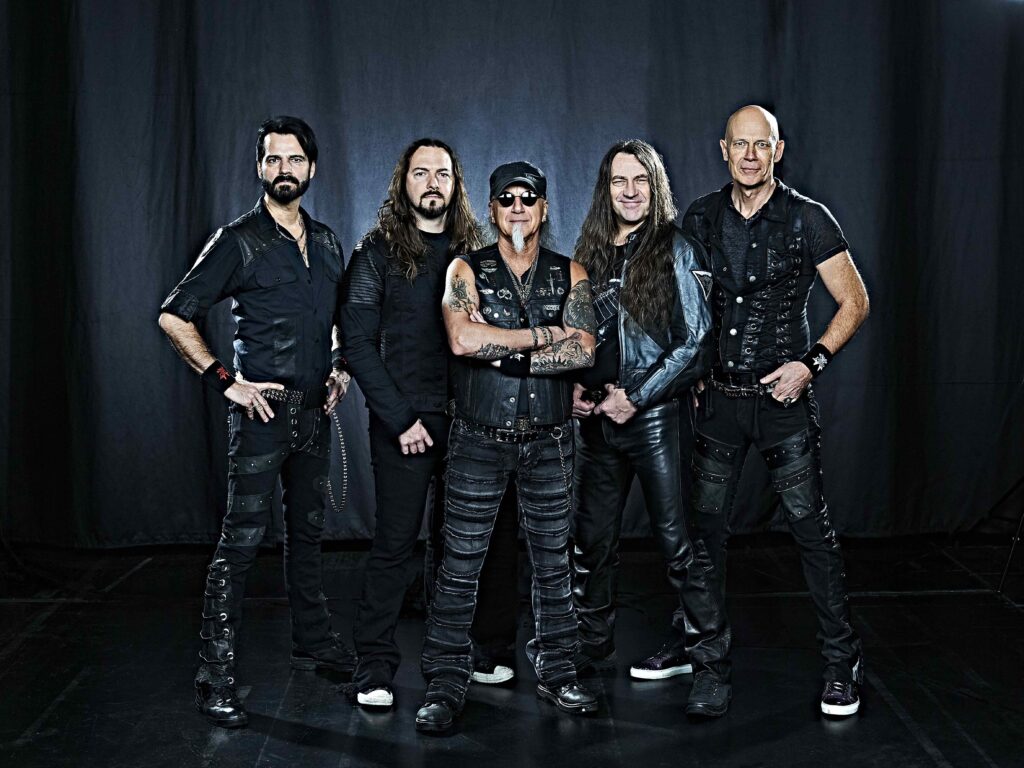
Website: acceptworldwide.com




